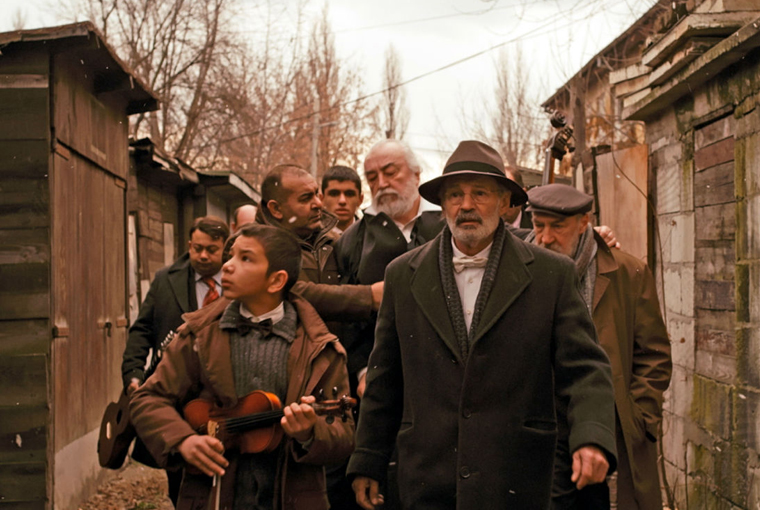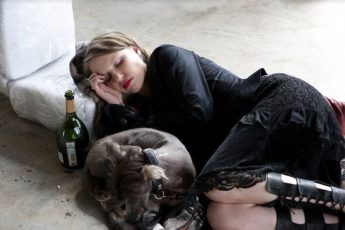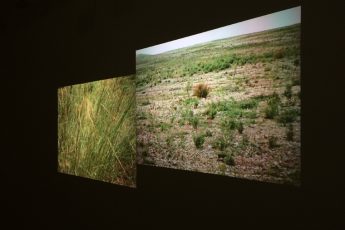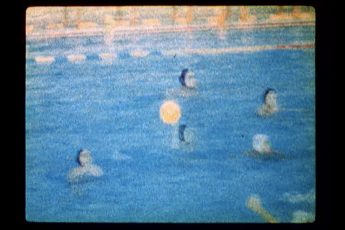Lessons of History
Goran Paskaljević’s When Day Breaks (Kad svane dan, 2012)
Vol. 23 (November 2012) by Anastasia Eleftheriou
Films about war crimes and mournful historical events reflect, in style and approach, the time in which they are made. Recently, films that talk about the past appear to seek a sort of absolution of history. They tell the stories of people who transform the horrible reality of war, persecution, or state oppression into a somehow more optimistic one. Notable examples from the last years include Agnieszka’s Holland polish drama film In Darkness (2011), German director Christian Petzold’s Barbara (2012), and Croat director Antun Vrdoljak’s The Long Dark Night (2004).
Serbian director’s Goran Paskaljević When Day Breaks (2012) is a surprisingly uncompromising film regarding its take on history and memory. The film speaks about the persecution of Jews and Gypsies in Belgrade but through a personal story that takes place today. An old musician named Misha Brankov receives a call from the Belgrade Museum of Jewish History, which informs him that during pipe reparation excavations in the old Trade Center of Belgrade (which had been used as a concentration camp for Jews and Gypsies in the Second World War) a box was unearthed hiding leftovers out of his family’s past. This box changes Misha Brankov’s life forever. He now sets out to discover his identity, which was hidden from him during his whole life. In his effort to pay honour to his ancestors Misha has to deal with both the ignorance and the respect and appreciation of the people around him. The film portrays, at times perhaps a little too tear-jerking, the frustration and emotional breakdown of the character, who, after trying to find out the story of his family, ends up chasing ghosts of the past.
Goran Paskaljević’s (2012) film is a surprising work for two reasons. First, given the current strong presence and influence of Nationalism in Serbia, this film about the Second World War focusing on the Jews today will surely stir up some controversies. In that, it has a specifically political importance for Serbia. Second, it is a film that focuses on the consequences that the Second World War (as well as the post-Yugoslavia wars of the 90’s) have on people’s lives today. This work encourages the audience to think about war and injustice through today’s perspective. What have those crimes left people dealing with after they ended? What changes have they brought to society? Is injustice, ignorance and cruelty really over when the war is over? Goran Paskaljević’s story is a personal story focusing on a Jewish family, but he succeeds in making it tangible for everyone who wants to understand history without having to see it being restaged…
This is the historical importance of the film. Unlike In Darkness, Barbara or The Long Dark Night, Paskaljević neither tries to imagine how the past may have been, nor does he try to mingle the past with contemporary needs for heroes. Take a look at Barbara, for example, that tells the story of a brave doctor in a small hospital in eastern Germany, close to the Baltic sea, who offers medical help to a young sick pregnant girl and then helps her to escape to Denmark. Films like these can be breathtaking, but they nurture an approach to the past that can do nothing but change the quality and the character of our historical memory. The wars and the crimes of the past centuries don’t need heroes to close historical wounds. Paskaljević shows us these wounds without ever showing the past. Indeed, the past is more present in this film than in many others that waste money and thoughts to reconstruct it according to today’s demands for reconciliation.




Leave a Comment